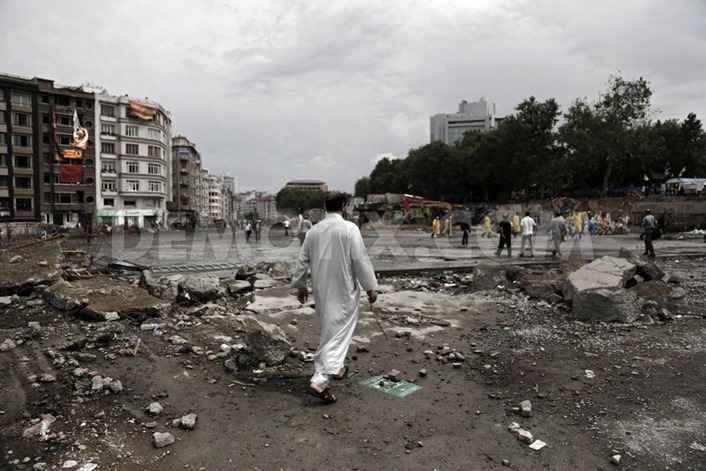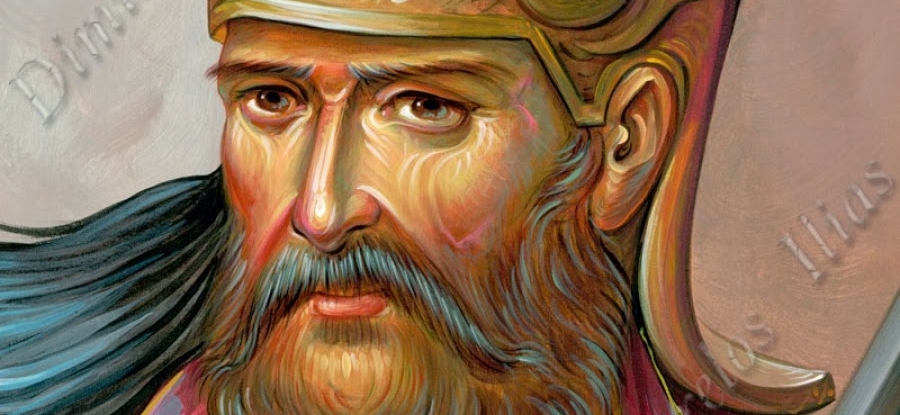Daily Stormer
June 1, 2014
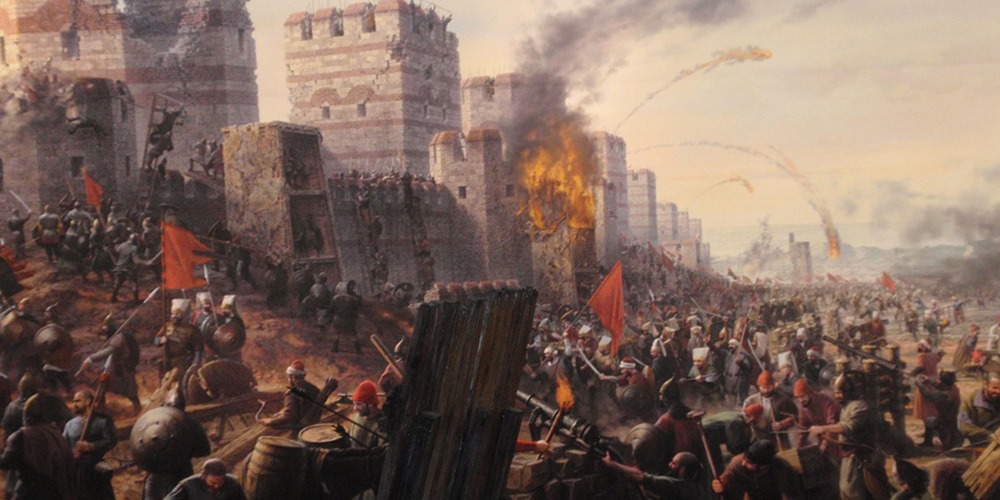
Daily Stormer commenter Magnes posted these quotes to remind us of what the Mohammedans stole from us on May 29th 1453.
Constantine Palaiologos,
The Last Emperor of the Romans.
“Western Europe has been slow to recognize its debt to Byzantium. The emergent nations of the western Empire surpassed the Greeks in material power and commercial enterprise from the 13th century onwards, but they did so behind the shield of Constantinople’s walls. Byzantium bore the brunt of the Muhammadan invasions, from the Arabs to the Ottoman Turks, and served as a breakwater which enabled the west to turn the tide. There were other incalculable debts; the preservation of classical literature and Roman law; the systematic study of history, the foundation of universities and the promotion of science, the rise of monasticism and missionary activity; the evolution of religious art and architecture which left their mark not only on Italy but in the Norman West. In return, the West sent to Byzantium its Crusaders and traders, between whom it is hard to distinguish for unscrupulous rapacity. It is little wonder that many Greeks accepted the Turkish conquest not only as a punishment for the heretical union of 1439, but as a merciful release from Latin domination.”
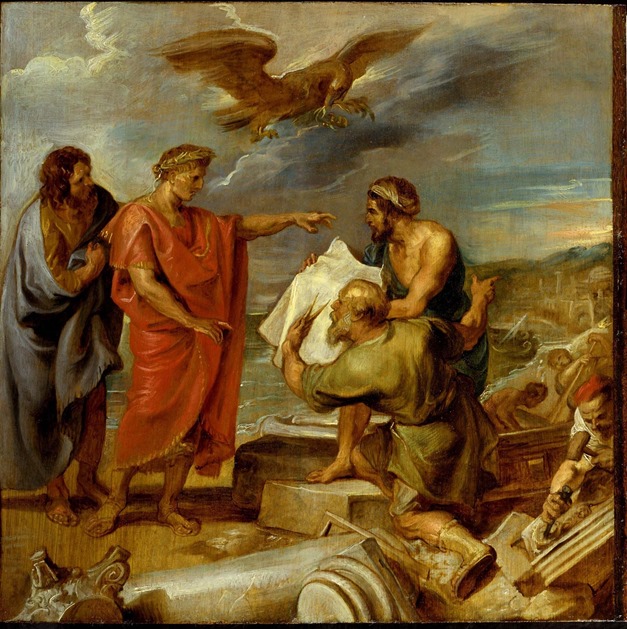
Modern Greece, A Short History
by C.M. Woodhouse
On 29 May 1453, the holy and imperial city of Constantinople fell to the Ottoman Turks. For eleven centuries Constantinople had been the center of civilization. It had been the capital of a glorious Empire and had been established by Saint Constantine the Great for the “glory of God.” Constantinople and the Empire of New Rome nurtured the doctrines and teachings of Christianity and preserved Classical Greek literature.
What all Christians believe today was formulated by the Greek Fathers of the Church. Saint John Chrysostom, Basil the Great, Cyril of Alexandria, Gregory the Theologian, and John of Damascus were among the Bishops and Saints who upheld the correct doctrines of Christianity and repudiated heresy. The holy fathers lived and taught not only in Constantinople, but in Cappadocia and other cities and regions of Asia Minor such as Nicea, Ephesus, and Calcedon. All these lands upon which Christian civilization was built, and upon which Hellenism survived for three thousand years are permanently lost and occupied by Muslim Turks.
Constantinople, “Queen of the Cities.” once ruled by Greek Orthodox Emperors and filled with Churches, Monasteries, and Cathedrals renowned for their splendor is now an overpopulated Turkish City and breeding ground for Islamic fundamentalists. On a black Tuesday five hundred and fifty years ago, the city fell to the forces of Islam and despite the hopes and dreams of the Greek nation, the conquest of the Turks was never reversed.
“Blocked from Europe by the impregnable walls of Constantinople and the unyielding spirit of the Emperor and his people, the armies of the Prophet were obliged to travel the entire length of the Mediterranean to the Straits of Gibraltar before they could invade the continent-thus extending their lines of communication and supply almost to breaking point and rendering impossible any permanent conquests beyond the Pyrenees. Had they captured Constantinople in the seventh century rather than the fifteenth, all Europe-and America-might be Muslim today.”
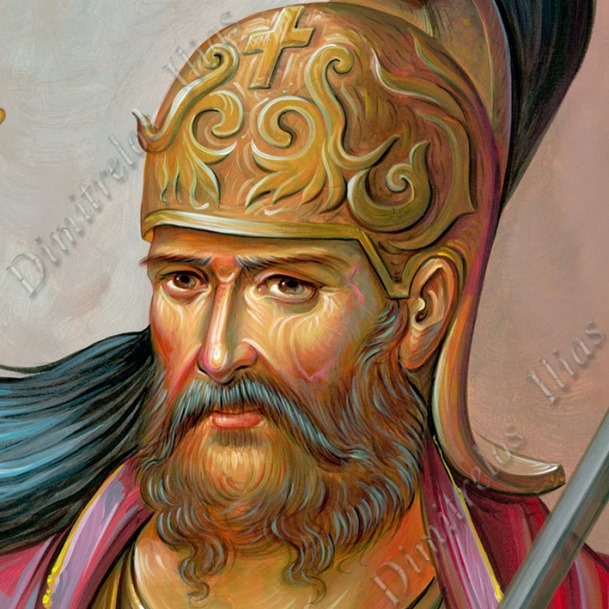
Byzantium, the Early Centuries
by John Julius Norwich
The Emperor Constantinos XI Palaiologos ultimately proved himself a worthy and honorable leader. Internationally isolated and abandoned he was left with 5,000 Greek soldiers to face an Ottoman army of at least 80,000. In addition to the Greeks, 2,000 Italian Catholics arrived to fight for Constantinople.
The Fall of Constantinople 1453
by Sir Steven Runciman
In this battle you must stand firm and have no fear, no thought of flight, but be inspired to resist with ever more Herculean strength. Animals may run away from animals. But you are men, men of stout heart, and you will hold at bay these dumb brutes, thrusting your spears and swords into them, so that they will know that they are fighting not against their own kind but against the masters of animals.
You men of Genoa, men of courage and famous for your infinite victories, you who have always protected this city, your mother, in many a conflict with the Turks, show now your prowess and your
aggressive spirit toward them with manly vigor. You men of Venice, most valiant heroes, whose swords have many a time made Turkish blood to flow.
The Immortal Emperor
by Donald Nicol
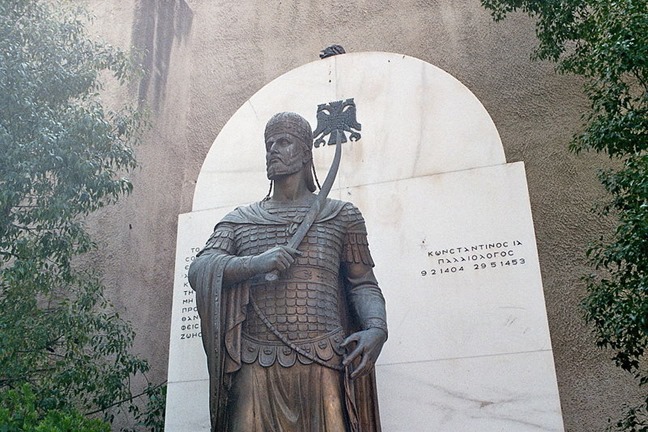
“God forbid that I should live an Emperor without an Empire. As my city falls, I will fall with it.” “Whoever wished to escape, let him save himself if he can; and whoever is ready to face death, let him follow me!”
The Crescent and the Cross
by David Dereksen
“His father Manuel II, when the Turks were at the gates of Constantinople in 1397, had uttered this prayer: “Lord Jesus Christ let it not come to pass that the great multitude of Christian people should hear it said that it was in the days of the Emperor Manuel that the city, with all its sacred and venerable monuments of the faith, was delivered to the infidel. This was the ultimate misfortune of his son Constantine Palaiologos, the Last Emperor of the Romans. He had prayed that he might be killed rather than live to see the consequences. He was fortunate only in that his last prayer was answered.”
The Immortal Emperor
by Donald Nicol
